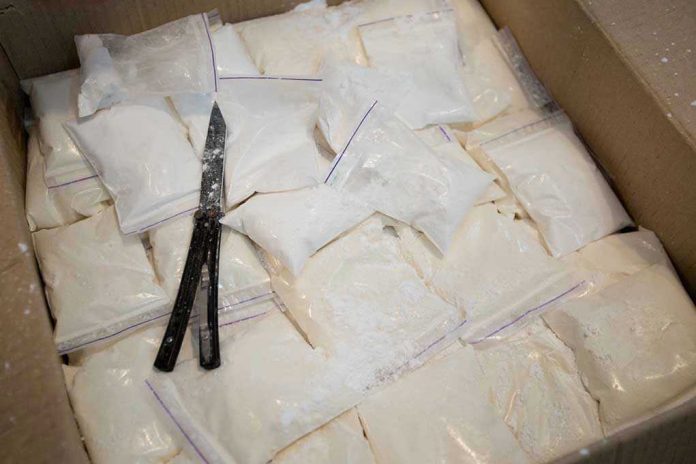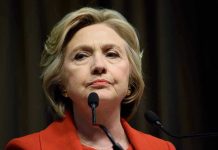
U.S. sanctions targeting Colombia’s top leaders have exposed a staggering level of military and political corruption fueling the global cocaine trade, threatening American security and constitutional values.
Story Highlights
- High-ranking Colombian generals and officials are accused of protecting and facilitating cocaine trafficking, undermining anti-narcotics efforts.
- Recent U.S. Treasury sanctions have targeted Colombia’s president, his family, and close associates for alleged complicity in the drug trade.
- Colombia’s “total peace” policy, heavily criticized for emboldening cartels, coincided with record cocaine production and diplomatic fallout with the U.S.
- Ongoing prosecutions and sanctions reveal a deep web of corruption, threatening regional stability and placing greater burdens on American communities.
Sanctions Expose Corruption at the Highest Levels
In September 2025, the U.S. Treasury imposed sweeping sanctions on Colombian President Gustavo Petro, his immediate family, and influential allies, citing their alleged roles in enabling cocaine trafficking networks. These actions follow years of mounting evidence that top Colombian military officials, including generals, have directly facilitated or shielded trafficking operations.
The sanctioned network is accused of undermining anti-narcotics efforts, allowing cartels to expand their power while American families pay the price for surging cocaine inflows and associated crime.
Military and Political Complicity Fuels Cocaine Trade
Colombia’s status as the world’s leading cocaine producer rests not only on the strength of its cartels but on systematic corruption among military, police, and political elites. The recent guilty pleas by leaders of a major trafficking organization in U.S. federal court highlighted how corrupt police and airport officials enabled vast smuggling schemes.
The complicity of generals and high-ranking officials represents a betrayal of core law enforcement and national security duties. Such collusion directly undermines the rule of law and emboldens criminal enterprises that target American communities.
Peace Policy Criticized for Empowering Cartels
President Petro’s so-called “total peace” policy, implemented after his 2022 election, was touted as a path to end decades of violence. In practice, critics argue, the policy weakened enforcement and allowed narco-terrorist groups to expand their operations.
By 2023, Colombia saw record highs in both coca cultivation and cocaine production, while high-profile arrests—including that of Petro’s own son for money laundering—cast serious doubts on the government’s commitment to combating organized crime. American officials described an “explosion” in drug output, with devastating consequences for U.S. border security and public health.
Diplomatic Fallout Strains Security Partnerships
The exposure of official corruption has strained U.S.-Colombia relations at a critical moment. Following the sanctions, Colombia abruptly terminated all arms purchases from the United States, raising alarms among security experts who warn that such moves could drive Colombia closer to adversarial powers.
American taxpayers, already frustrated by years of foreign aid and security cooperation, now see their investments undermined by foreign leaders more interested in political power and illicit profits than real reform. The diplomatic standoff highlights the risks of trusting corrupt foreign regimes while American interests and constitutional principles hang in the balance.
Long-Term Impact: Erosion of Trust, Threats to U.S. Security
As prosecutions and investigations continue, the long-term implications for both Colombia and the United States are profound. In Colombia, public trust in institutions has been further eroded by the exposure of collusion and criminality at the top.
For Americans, the surge in cocaine trafficking means more drugs on the streets, greater strain on law enforcement, and a continued assault on the nation’s borders and values.
The Trump administration’s decisive response—sanctions, prosecutions, and a hard line on foreign corruption—reflects a renewed commitment to American sovereignty and the rule of law, but ongoing vigilance is essential to prevent future betrayals by foreign and domestic elites alike.
Sources:
Leaders of Colombian Drug Trafficking Organization Plead Guilty to Conspiring to Distribute Cocaine
U.S. Department of the Treasury Sanctions Colombian Officials for Complicity in Drug Trafficking
Colombian Government Terminates Arms Purchases from the United States
Colombia’s Top Drug Cartel in Decline, May Lay Down Arms: Negotiator











